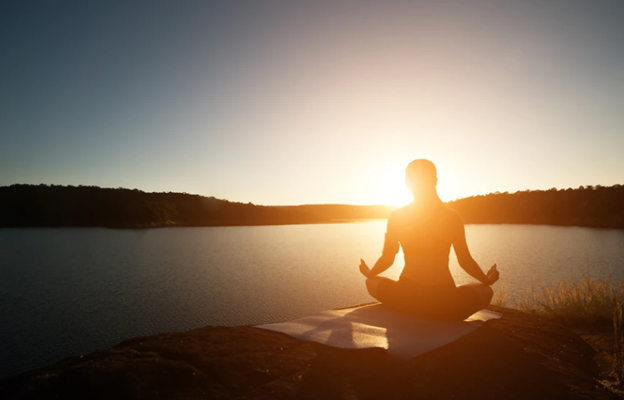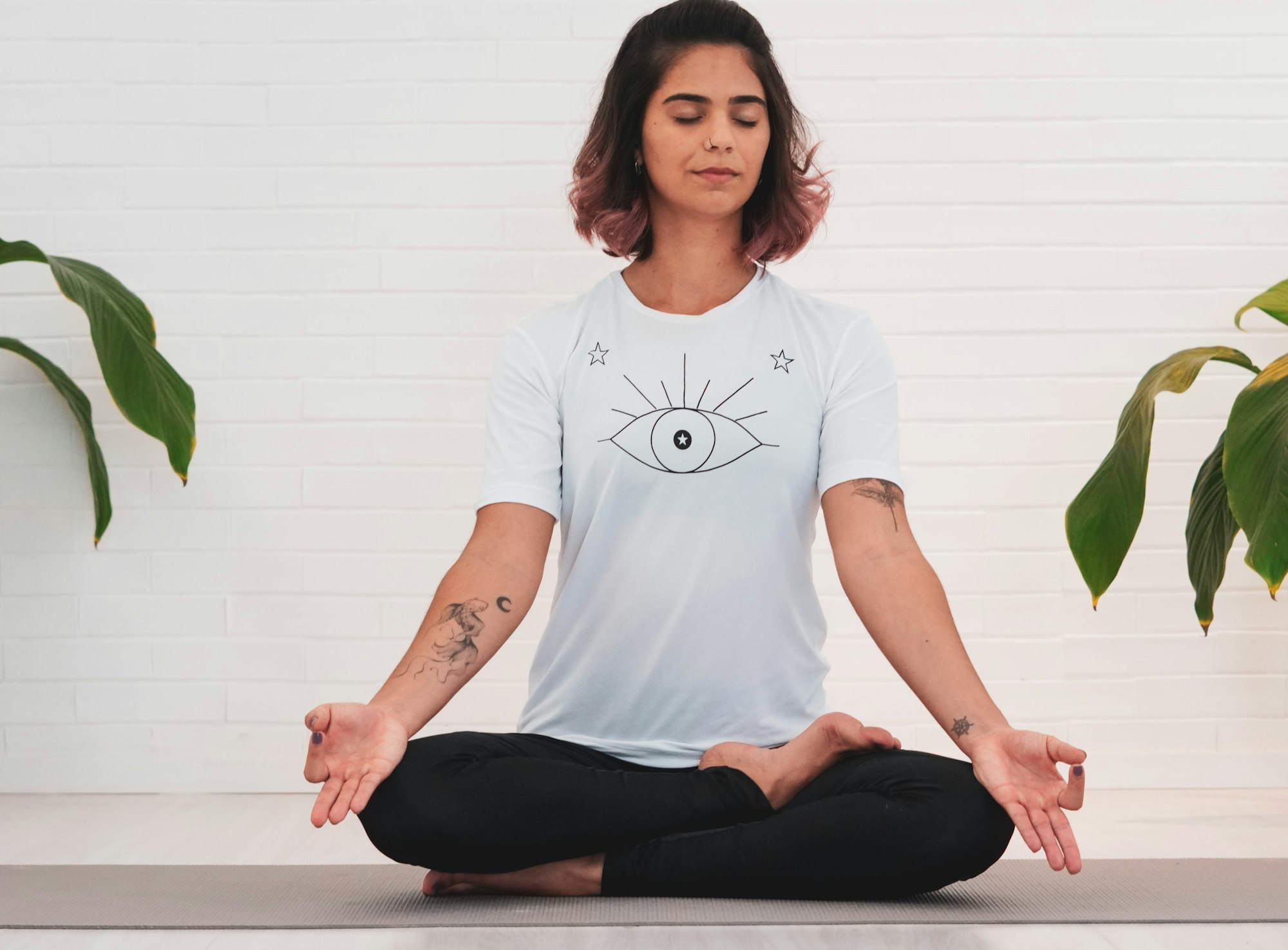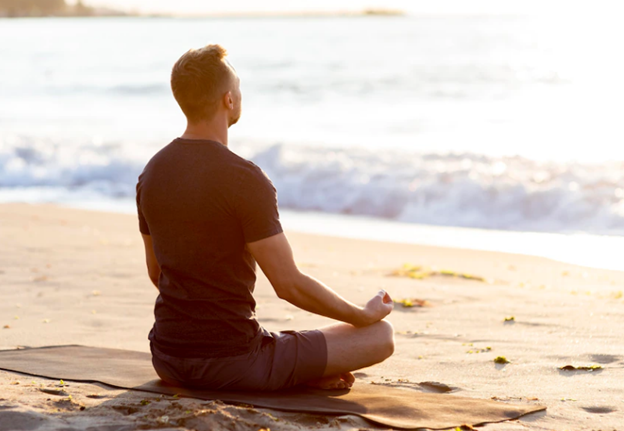Importance Of Meditation and Yoga for Relaxation
Benefits of the mindfulness and meditation are considered by modern psychologists as well as industrial development teams. It reduces stress and anxiety in modern competitive working environments.

When a thousand things are calling for your attention, it puts you in a constant state of worry. Rushing from task to task so quickly, we eventually end up losing track of how we are feeling, both physically and emotionally.
However, mindfulness and meditation can help you gain control of your body and emotions as the purpose of meditation is to bring peace to one’s mind and soul. With the help of some simple meditation exercises and listening to relaxing music for about 30 minutes, you will be open to whatever challenges life throws at you and catch up on missed opportunities.
Importance of Meditation for Calm Your Mind
There are tons of science-backed benefits of meditation and here, we will discuss some with you.
1. Reduces Anxiety
Anxiety affects everyone, and it can seem uncontrollable unless you practice self-awareness. Meditation can support you in navigating the various ways in which anxiety can affect your life and how you can gain control over it.
Moreover, daily meditation practices can help people with generalized anxiety disorder reduce their cluttered state of mind and experience more physical relaxation. However, consistent meditation practice is required to reap the long-term benefits of reduced anxiety.
2. Reduces Stress
With the help of meditation, you can stop the constant stream of overwhelming thoughts which could be stressing you out. By inducing the body's relaxation response, meditation affects the body in the exact opposite way that stress does. According to research, those who meditate regularly exhibit better stress management, lower levels of stress-related hormones, and fewer inflammatory reactions than those who don't.

3. Improves Sleep Cycle
Another reason meditation is vital for relaxation is that it improves sleeping habits. To enhance deeper, more restful sleep, it can help you fall asleep more quickly and stay asleep for longer. Meditation has been proven to hasten the process of falling asleep and to promote rapid eye movement (REM) sleep states.
4. Help Reduces Pain
According to a 2016 study, people who regularly meditate are less susceptible to pain. This is because the brain's pain-relieving opioids are used more frequently during meditation, and this reduces the brain's sensitivity to pain.
Even though you might not be able to change the circumstances around you, meditation gives you the freedom to change how you react to them. Furthermore, if you have a chronic illness, meditation can help you reduce its painful effects and increase the sense of relaxation in your body.
5. Lowers Blood Pressure
Numerous studies have found that consistent meditation can mildly lower blood pressure or lessen the need for blood pressure medications. It can make your body stronger and relieve stress. Additionally, these methods may reduce your systolic blood pressure by 5 mm Hg or more. Thus, this leads to a lower risk of chronic unforeseen heart problems such as heart attacks or strokes.
6. Clear Your Thoughts
Having no clear vision and messed-up thoughts constantly puts us in a state of panic internally. On the other hand, meditation gives us the opportunity to see things from a broader perspective and foresight.
With an organized mindset, each of us is surrounded by a wealth of clarity and wisdom, and taking a step back helps us to see things more clearly. A healthy point of view is a valuable tool for leading a purposeful and happy life.
7. Enhances Your Awareness
We previously discussed how meditation can help with self-awareness. To demonstrate how it works, meditation is the ability to detach from habitual thought patterns, particularly negative ones. You can master your thoughts with consistent practice. Being in charge in this way can assist you in transitioning from a reactive to a compassionate, proactive state of being.
Importance of Meditating in the Morning
Our mornings typically begin with a checklist of everything we have to do, followed by a sudden burst of nonstop planning and organizing. Most of the time, this practice is thought to be helpful for increasing focus, but in reality, it puts you in constant panic mode.
Start your day with a morning meditation routine as there are many benefits of morning meditation. It will help you stay focused, at ease, and upbeat throughout the entire day. Try to allot 15 minutes every day in the morning. Start with 5 minutes if it's your first time, and then increase it by 5 over the following week.

Best Time to Meditate
Choosing when to meditate depends on personal preference and your circadian rhythm. Your circadian clock is a 24-hour internal clock that controls your sleep-wake cycle and determines when you are the most alert or sleepy.
Mostly, it is deemed suitable to meditate in the morning according to your specific schedule. However, meditation can be necessary at any time of day. You don't have to limit your meditation to only taking place at set times since anxiety, stress, or pain can be felt unknowingly. This provides you with a much clearer picture of your energy levels and potential openness to the advantages of meditation.

The Influence of Yoga On Daily Life
Yoga is a physical, spiritual and mental discipline whose goal is to connect the human being with the universe. The origin of the history of yoga is not well determined as it is very difficult to translate the ancestral articles of Vedic culture. It is only known for certain that yoga originated in India, around the year 7000, before the beginning of the Christian Age. A scholarly about yoga reveal that at first people practiced yoga to gain the power of different deities. These exercises were very difficult to do and generated pain among their practitioners. As yoga evolved, the exercises were simplified and physical pain was eliminated.
All yoga poses have a spiritual meaning that helps the practitioner reach his personal evolution. In fact, those who choose to practice yoga have actually started a spiritual path and each yoga pose helps them complete that path. Each yoga exercise has the mission of calming the mind, balancing internal energy with the outside world and positively controlling emotions. There are certain postures to neutralize each negative state. For example, someone who suffers from anxiety is in his best interest to do the Paschimottanasana posture (sitting doing a flex from the front) which generates serenity.
Yoga in India and China
Indian yoga arrives in the West with the aim of developing spirituality among its practitioners. Then it is also practiced to get fit and above all to balance emotions. Today yoga is very practiced in China, where there were already several disciplines that resemble yoga but are actually martial arts: the Dao Inn, Tai Chi and Chi Kung. The purpose of these practices is for the individual to achieve spiritual freedom, joining the supreme energy with the individual. There is currently a Chinese yoga, which contains many exercises aimed at eliminating the blockages that exist between the individual and the natural flow of energy. The main function is the purification of energy and the achievement of psychic balance.
Yoga Precursors
Today there are several spiritual leaders who promote yoga to improve the quality of life. One of them is the Indian spiritual guru Sri Ravi Shankar, founder of the Art of Living. Ravi Shankar's goal is to promote world peace through the practice of yoga. Another precursor to yoga is Indian physician Deepak Chopra, who recommends practicing yoga to effectively manage emotions, have good interpersonal relationships and achieve good labor productivity, in relation to personal vocation.


